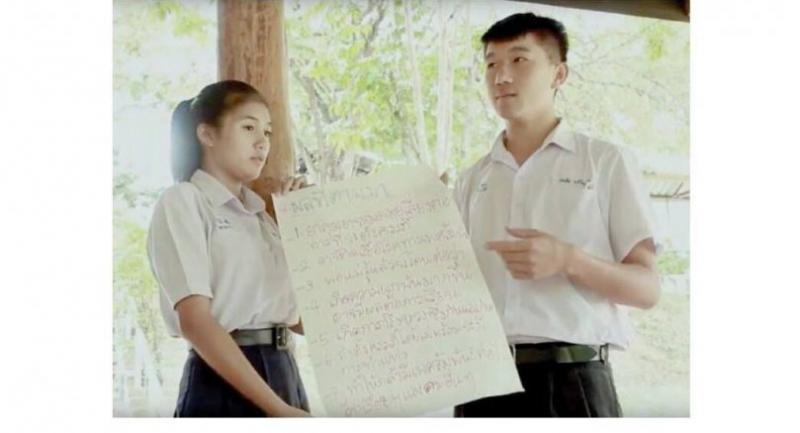Sexuality education programme falling short in Thailand: Unicef study

Although the Comprehensive Sexuality Education (CSE) programme is being taught in almost all secondary schools in Thailand, more teaching time and better teacher training are needed for students to build the knowledge and skills they need to manage their sexuality and sexual lives, a Unicef-supported study on CSE revealed on Wednesday.
The study found that important topics such as sexual rights, gender equality and diversity, respect for the rights of others are often neglected in the delivery of the CSE programme. This leaves many students with damaging attitudes to gender roles, sexual rights, and to domestic violence. Equally, the study found that the teaching too often focusses only on the delivery of information, and not enough on building critical thinking, communication and negotiation skills – important skills for young people to successfully manage their sexuality and sexual lives.
The “Thailand Review of the Implementation of Comprehensive Sexuality Education” collected data from 8,837 students and 692 teachers from 398 secondary and vocational schools nationwide from September 2015 to March 2016. The study examines the implementation of CSE in schools across Thailand, identifying both successes and areas in need of improvement. The study was conducted by the Centre for Health Policy Studies, Mahidol University with support from Unicef, in partnership with the Office of the Basic Education Commission, the Office of the Vocational Education Commission, UNFPA (United Nations Population Fund) and Unesco.
“The fact that almost every school in Thailand is implementing the CSE programme is great news,” said Valerie Taton, Unicef Thailand deputy representative. “At the same time, the fact that so many students are still left without critical skills to help them navigate their sexuality and sexual lives, is deeply worrying. We know that to effectively reduce the rate of adolescent pregnancy in Thailand, as well as the high rates of sexually transmitted diseases among young people, we need to equip them with these important skills, and with the self-awareness and self-confidence to make good decisions about their sexuality and sexual lives.”
The study found that 41 per cent of male vocational school students believe that a husband may beat up his wife if she is unfaithful to him, indicating problematic attitudes on gender, sexuality and domestic violence.
Around half of male secondary school students in grades 7 to 9 believe that same-sex relations are wrong. A majority of students were unable to correctly answer questions about the menstrual cycle, while many female students mentioned emergency contraceptive pills as their main method of contraception and many boys indicated an unwillingness to use condoms. Only 54 per cent of female students in secondary schools said they are confident they can insist on condom use every time they have sex.
The study quotes a review of sexuality education programmes in various countries (Haberland, 2015) that found that 80 per cent of programmes that incorporated teaching about gender and power were effective in reducing unwanted pregnancies or sexually transmitted infections (STI) compared with only 17 per cent of programmes that did not include them.
According to the study, almost all schools in Thailand delivered the Comprehensive Sexuality Education in a non-comprehensive manner, with a narrow focus on biological topics, on abstinence from sex before marriage, or on the prevention of unwanted pregnancy. The study also noted that more than half of teachers did not receive any specific training on how to teach CSE, leading them to rely heavily on a lecture-based approach that is not effective in allowing students to examine and discuss complex areas of sexuality and gender equality.
The study recommends that efforts now be made to ensure that the Comprehensive Sexuality Education is taught in a truly comprehensive manner, by including all topics on the CSE curriculum, and in such a way as to promote critical thinking about gender and power. The study also recommends that every school allocates adequate time in the timetable; and that every teacher receives full training in the teaching of CSE.
According to the 2016 Multiple Indicators Cluster Survey, conducted the National Statistical Office with support from Unicef, the birth rate for female adolescents 15-19 years is 51 births per 1,000 women, one of the highest rates in the Asean region. A Situation Analysis of Young People at High Risk of HIV Exposure in Thailand, supported by Unicef and released in 2014, suggested that 70 per cent of new STI cases occur in young people aged 15-24.
